- Home
- George Orwell
Coming Up for Air Page 14
Coming Up for Air Read online
Page 14
I had an 'A' subscription at Boots' and went to half-crown dances and belonged to a local tennis club. You know those tennis clubs in the genteel suburbs-little wooden pavilions and high wire-netting enclosures where young chaps in rather badly cut white flannels prance up and down, shouting 'Fifteen forty!' and 'Vantage all!' in voices which are a tolerable imitation of the Upper Crust. I'd learned to play tennis, didn't dance too badly and got on well with the girls. At nearly thirty I wasn't a bad-looking chap, with my red face and butter-coloured hair, and in those days it was still a point in your favour to have fought in the war. I never, then or at any other time, succeeded in looking like a gentleman, but on the other hand you probably wouldn't have taken me for the son of a small shopkeeper in a country town. I could keep my end up in the rather mixed society of a place like Ealing, where the office-employee class overlaps with the middling-professional class. It was at the tennis club that I first met Hilda.
At that time Hilda was twenty-four. She was a small, slim, rather timid girl, with dark hair, beautiful movements and-because of having very large eyes-a distinct resemblance to a hare. She was one of those people who never say much, but remain on the edge of any conversation that's going on, and give the impression that they're listening. If she said anything at all, it was usually 'Oh, yes, I think so too', agreeing with whoever had spoken last. At tennis she hopped about very gracefully, and didn't play badly, but somehow had a helpless, childish air. Her surname was Vincent.
If you're married, there'll have been times when you've said to yourself 'Why the hell did I do it?', and God knows I've said it often enough about Hilda. And once again, looking at it across fifteen years, why did I marry Hilda?
Partly, of course, because she was young and in a way very pretty. Beyond that I can only say that because she came of totally different origins from myself it was very difficult for me to get any grasp of what she was really like. I had to marry her first and find out about her afterwards, whereas if I'd married, say, Elsie Waters, I'd have known what I was marrying. Hilda belonged to a class I only knew by hearsay, the poverty-stricken officer class. For generations past her family had been soldiers, sailors, clergymen, Anglo-Indian officials and that kind of thing. They'd never had any money, but on the other hand none of them had ever done anything that I should recognise as work. Say what you will, there's a kind of snob-appeal in that, if you belong as I do to the God-fearing shopkeeper class, the low-church and high-tea class. It wouldn't make any impression on me now, but it did then. Don't mistake what I'm saying. I don't mean that I married Hilda because she belonged to the class I'd once served across the counter, with some notion of jockeying myself up in the social scale. It was merely that I couldn't understand her and therefore was capable of being goofy about her. And one thing I certainly didn't grasp was that the girls in these penniless middle-class families will marry anything in trousers, just to get away from home.
It wasn't long before Hilda took me home to see her family. I hadn't known till then that there was a considerable Anglo-Indian colony in Ealing. Talk about discovering a new world! It was quite a revelation to me.
Do you know these Anglo-Indian families? It's almost impossible, when you get inside these people's houses, to remember that out in the street it's England and the twentieth century. As soon as you set foot inside the front door you're in India in the 'eighties. You know the kind of atmosphere. The carved teak furniture, the brass trays, the dusty tiger-skulls on the wall, the Trichinopoly cigars, the red-hot pickles, the yellow photographs of chaps in sun-helmets, the Hindustani words that you're expected to know the meaning of, the everlasting anecdotes about tiger-shoots and what Smith said to Jones in Poona in '87. It's a sort of little world of their own that they've created, like a kind of cyst. To me, of course, it was all quite new and in some ways rather interesting. Old Vincent, Hilda's father, had been not only in India but also in some even more outlandish place, Borneo or Sarawak. I forget which. He was the usual type, completely bald, almost invisible behind his moustache, and full of stories about cobras and cummerbunds and what the district collector said in '93. Hilda's mother was so colourless that she was just like one of the faded photos on the wall. There was also a son, Harold, who had some official job in Ceylon and was home on leave at the time when I first met Hilda. They had a little dark house in one of those buried back-streets that exist in Ealing. It smelt perpetually of Trichinopoly cigars and it was so full of spears, blow-pipes, brass ornaments and the heads of wild animals that you could hardly move about in it.
Old Vincent had retired in 1910, and since then he and his wife had shown about as much activity, mental or physical, as a couple of shellfish. But at the time I was vaguely impressed by a family which had had majors, colonels and once even an admiral in it. My attitude towards the Vincents, and theirs towards me, is an interesting illustration of what fools people can be when they get outside their own line. Put me among business people-whether they're company directors or commercial travellers-and I'm a fairly good judge of character. But I had no experience whatever of the officer-rentier-clergyman class, and I was inclined to kow-tow to these decayed throw-outs. I looked on them as my social and intellectual superiors, while they on the other hand mistook me for a rising young business man who before long would be pulling down the big dough. To people of that kind, 'business', whether it's marine insurance or selling peanuts, is just a dark mystery. All they know is that it's something rather vulgar out of which you can make money. Old Vincent used to talk impressively about my being 'in business'-once, I remember, he had a slip of the tongue and said 'in trade'-and obviously didn't grasp the difference between being in business as an employee and being there on your own account. He had some vague notion that as I was 'in' the Flying Salamander I should sooner or later rise to the top of it, by a process of promotion. I think it's possible that he also had pictures of himself touching me for fivers at some future date. Harold certainly had. I could see it in his eye. In fact, even with my income being what it is, I'd probably be lending money to Harold at this moment if he were alive. Luckily he died a few years after we were married, of enteric or something, and both the old Vincents are dead too.
Well, Hilda and I were married, and right from the start it was a flop. Why did you marry her? you say. But why did you marry yours? These things happen to us. I wonder whether you'll believe that during the first two or three years I had serious thoughts of killing Hilda. Of course in practice one never does these things, they're only a kind of fantasy that one enjoys thinking about. Besides, chaps who murder their wives always get copped. However cleverly you've faked the alibi, they know perfectly well that it's you who did it, and they'll pin it onto you somehow. When a woman's bumped off, her husband is always the first suspect-which gives you a little side-glimpse of what people really think about marriage.
One gets used to everything in time. After a year or two I stopped wanting to kill her and started wondering about her. Just wondering. For hours, sometimes, on Sunday afternoons or in the evening when I've come home from work, I've lain on my bed with all my clothes on except my shoes, wondering about women. Why they're like that, how they get like that, whether they're doing it on purpose. It seems to be a most frightful thing, the suddenness with which some women go to pieces after they're married. It's as if they were strung up to do just that one thing, and the instant they've done it they wither off like a flower that's set its seed. What really gets me down is the dreary attitude towards life that it implies. If marriage was just an open swindle-if the woman trapped you into it and then turned round and said, 'Now, you bastard, I've caught you and you're going to work for me while I have a good time!'-I wouldn't mind so much. But not a bit of it. They don't want to have a good time, they merely want to slump into middle-age as quickly as possible. After the frightful battle of getting her man to the altar, the woman kind of relaxes, and all her youth, looks, energy and joy of life just vanish overnight. It was like that with Hilda. Here was this pr
etty, delicate girl, who'd seemed to me-and in fact when I first knew her she was-a finer type of animal than myself, and within only about three years she'd settled down into a depressed, lifeless, middle-aged frump. I'm not denying that I was part of the reason. But whoever she'd married it would have been much the same.
What Hilda lacks-I discovered this about a week after we were married-is any kind of joy in life, any kind of interest in things for their own sake. The idea of doing things because you enjoy them is something she can hardly understand. It was through Hilda that I first got a notion of what these decayed middle-class families are really like. The essential fact about them is that all their vitality has been drained away by lack of money. In families like that, which live on tiny pensions and annuities-that's to say on incomes which never get bigger and generally get smaller-there's more sense of poverty, more crust-wiping and looking twice at sixpence, than you'd find in any farm-labourer's family, let alone a family like mine. Hilda's often told me that almost the first thing she can remember is a ghastly feeling that there was never enough money for anything. Of course, in that kind of family, the lack of money is always at its worst when the kids are at the school-age. Consequently they grow up, especially the girls, with a fixed idea not only that one always is hard-up but that it's one's duty to be miserable about it.
At the beginning we lived in a poky little maisonette and had a job to get by on my wages. Later, when I was transferred to the West Bletchley branch, things were better, but Hilda's attitude didn't change. Always that ghastly glooming about money! The milk bill! The coal bill! The rent! The school fees! We've lived all our life together to the tune of 'Next week we'll be in the workhouse'. It's not that Hilda's mean, in the ordinary sense of the word, and still less that she's selfish. Even when there happens to be a bit of spare cash knocking about I can hardly persuade her to buy herself any decent clothes. But she's got this feeling that you ought to be perpetually working yourself up into a stew about lack of money. Just working up an atmosphere of misery from a sense of duty. I'm not like that. I've got more the prole's attitude towards money. Life's here to be lived, and if we're going to be in the soup next week-well, next week is a long way off. What really shocks her is the fact that I refuse to worry. She's always going for me about it. 'But, George! You don't seem to realise! We've simply got no money at all! It's very serious!' She loves getting into a panic because something or other is 'serious'. And of late she's got that trick, when she's glooming about something, of kind of hunching her shoulders and folding her arms across her breast. If you made a list of Hilda's remarks throughout the day, you'd find three bracketed together at the top-'We can't afford it', 'It's a great saving' and 'I don't know where the money's to come from'. She does everything for negative reasons. When she makes a cake she's not thinking about the cake, only about how to save butter and eggs. When I'm in bed with her all she thinks about is how not to have a baby. If she goes to the pictures she's all the time writhing with indignation about the price of the seats. Her methods of housekeeping, with all the emphasis on 'using things up' and 'making things do', would have given Mother convulsions. On the other hand, Hilda isn't in the least a snob. She's never looked down on me because I'm not a gentleman. On the contrary, from her point of view I'm much too lordly in my habits. We never have a meal in a teashop without a frightful row in whispers because I'm tipping the waitress too much. And it's a curious thing that in the last few years she's become much more definitely lower-middle-class, in outlook and even in appearance, than I am. Of course all this 'saving' business has never led to anything. It never does. We live just about as well or as badly as the other people in Ellesmere Road. But the everlasting stew about the gas bill and the milk bill and the awful price of butter and the kids' boots and school fees goes on and on. It's a kind of game with Hilda.
We moved to West Bletchley in '29 and started buying the house in Ellesmere Road the next year, a little before Billy was born. After I was made an Inspector I was more away from home and had more opportunities with other women. Of course I was unfaithful-I won't say all the time, but as often as I got the chance. Curiously enough, Hilda was jealous. In a way, considering how little that kind of thing means to her, I wouldn't have expected her to mind. And like all jealous women she'll sometimes show a cunning you wouldn't think her capable of. Sometimes the way she's caught me out would have made me believe in telepathy, if it wasn't that she's often been equally suspicious when I didn't happen to be guilty. I'm more or less permanently under suspicion, though, God knows, in the last few years-the last five years, anyway-I've been innocent enough. You have to be, when you're as fat as I am.
Taking it by and large, I suppose Hilda and I don't get on worse than about half the couples in Ellesmere Road. There've been times when I've thought of separation or divorce, but in our walk of life you don't do those things. You can't afford to. And then time goes on, and you kind of give up struggling. When you've lived with a woman for fifteen years, it's difficult to imagine life without her. She's part of the order of things. I dare say you might find things to object to in the sun and the moon, but do you really want to change them? Besides, there were the kids. Kids are a 'link', as they say. Or a 'tie'. Not to say a ball and fetter.
Of late years Hilda has made two great friends called Mrs Wheeler and Miss Minns. Mrs Wheeler is a widow, and I gather she's got very bitter ideas about the male sex. I can feel her kind of quivering with disapproval if I so much as come into the room. She's a faded little woman and gives you a curious impression that she's the same colour all over, a kind of greyish dust-colour, but she's full of energy. She's a bad influence on Hilda, because she's got the same passion for 'saving' and 'making things do', though in a slightly different form. With her it takes the form of thinking that you can have a good time without paying for it. She's for ever nosing out bargains and amusements that don't cost money. With people like that it doesn't matter a damn whether they want a thing or not, it's merely a question of whether they can get it on the cheap. When the big shops have their remnant sales Mrs Wheeler's always at the head of the queue, and it's her greatest pride, after a day's hard fighting round the counter, to come out without having bought anything. Miss Minns is quite a different sort. She's really a sad case, poor Miss Minns. She's a tall thin woman of about thirty-eight, with black patent-leather hair and a very good, trusting kind of face. She lives on some kind of tiny fixed income, an annuity or something, and I fancy she's a leftover from the old society of West Bletchley, when it was a little country town, before the suburb grew up. It's written all over her that her father was a clergyman and sat on her pretty heavily while he lived. They're a special by-product of the middle classes, these women who turn into withered hags before they even manage to escape from home. Poor old Miss Minns, for all her wrinkles, still looks exactly like a child. It's still a tremendous adventure to her not to go to church. She's always burbling about 'modern progress' and 'the woman's movement', and she's got a vague yearning to do something she calls 'developing her mind', only she doesn't quite know how to start. I think in the beginning she cottoned on to Hilda and Mrs Wheeler out of pure loneliness, but now they take her with them wherever they go.
And the times they've had together, those three! Sometimes I've almost envied them. Mrs Wheeler is the leading spirit. You couldn't name a kind of idiocy that she hasn't dragged them into at one time or another. Anything from theosophy to cat's-cradle, provided you can do it on the cheap. For months they went in for the food-crank business. Mrs Wheeler had picked up a second-hand copy of some book called Radiant Energy which proved that you should live on lettuces and other things that don't cost money. Of course this appealed to Hilda, who immediately began starving herself. She'd have tried it on me and the kids as well, only I put my foot down. Then they had a go at faith-healing. Then they thought of tackling Pelmanism, but after a lot of correspondence they found that they couldn't get the booklets free, which had been Mrs Wheeler's idea. Then it was hay-
box cookery. Then it was some filthy stuff called bee wine, which was supposed to cost nothing at all because you made it out of water. They dropped that after they'd read an article in the paper saying that bee wine gives you cancer. Then they nearly joined one of those women's clubs which go for conducted tours round factories, but after a lot of arithmetic Mrs Wheeler decided that the free teas the factories gave you didn't quite equal the subscription. Then Mrs Wheeler scraped acquaintance with somebody who gave away free tickets for plays produced by some stage society or other. I've known the three of them sit for hours listening to some highbrow play of which they didn't even pretend to understand a word-couldn't even tell you the name of the play afterwards-but they felt that they were getting something for nothing. Once they even took up spiritualism. Mrs Wheeler had run across some down-and-out medium who was so desperate that he'd give seances for eighteen-pence, so that the three of them could have a glimpse beyond the veil for a tanner a time. I saw him once when he came to give a seance at our house. He was a seedy-looking old devil and obviously in mortal terror of DTs. He was so shaky that when he was taking his overcoat off in the hall he had a sort of spasm and a hank of butter-muslin dropped out of his trouser-leg. I managed to shove it back to him before the women saw. Butter-muslin is what they make the ectoplasm with, so I'm told. I suppose he was going on to another seance afterwards. You don't get manifestations for eighteen-pence. Mrs Wheeler's biggest find of the last few years is the Left Book Club. I think it was in '36 that the news of the Left Book Club got to West Bletchley. I joined it soon afterwards, and it's almost the only time I can remember spending money without Hilda protesting. She can see some sense in buying a book when you're getting it for a third of its proper price. These women's attitude is curious, really. Miss Minns certainly had a try at reading one or two of the books, but this wouldn't even have occurred to the other two. They've never had any direct connection with the Left Book Club or any notion what it's all about-in fact I believe at the beginning Mrs Wheeler thought it had something to do with books which had been left in railway carriages and were being sold off cheap. But they do know that it means seven-and-sixpenny books for half a crown, and so they're always saying that it's 'such a good idea'. Now and again the local Left Book Club branch holds meetings and gets people down to speak, and Mrs Wheeler always takes the others along. She's a great one for public meetings of any kind, always provided that it's indoors and admission free. The three of them sit there like lumps of pudding. They don't know what the meeting's about and they don't care, but they've got a vague feeling, especially Miss Minns, that they're improving their minds, and it isn't costing them anything.

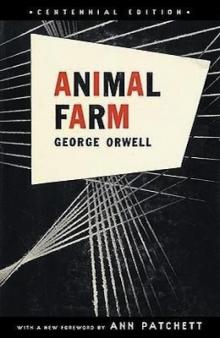 Animal Farm & 1984
Animal Farm & 1984 Homage to Catalonia
Homage to Catalonia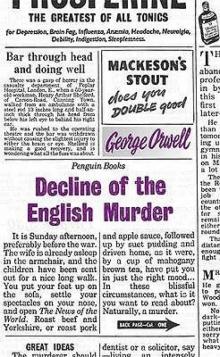 Decline of the English Murder
Decline of the English Murder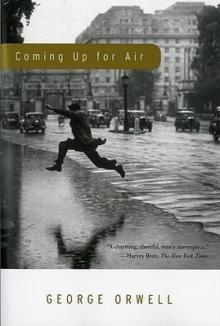 Coming Up for Air
Coming Up for Air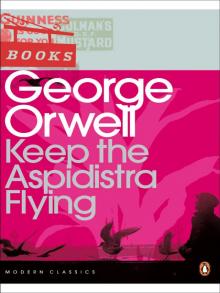 Keep the Aspidistra Flying
Keep the Aspidistra Flying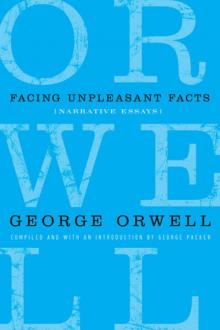 Facing Unpleasant Facts: Narrative Essays
Facing Unpleasant Facts: Narrative Essays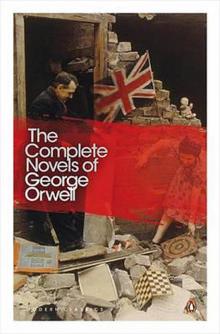 The Complete Novels of George Orwell
The Complete Novels of George Orwell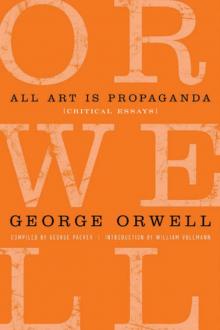 All Art Is Propaganda: Critical Essays
All Art Is Propaganda: Critical Essays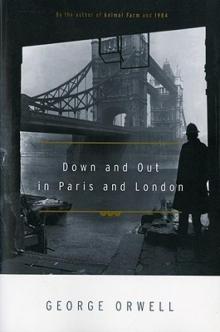 Down and Out in Paris and London
Down and Out in Paris and London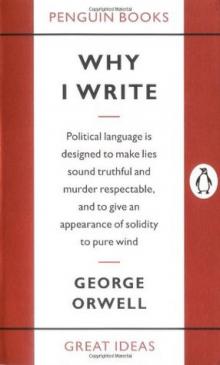 Why I Write
Why I Write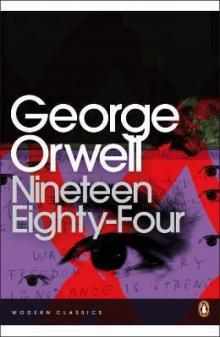 Nineteen Eighty-Four
Nineteen Eighty-Four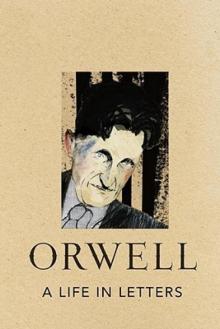 A Life in Letters
A Life in Letters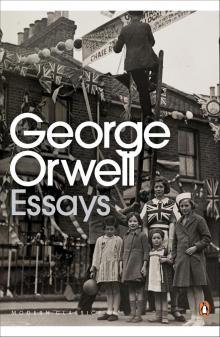 Essays
Essays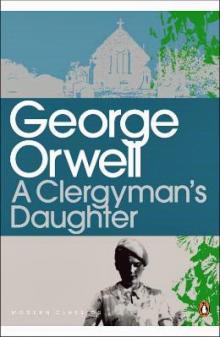 A Clergyman's Daughter
A Clergyman's Daughter Fifty Orwell Essays
Fifty Orwell Essays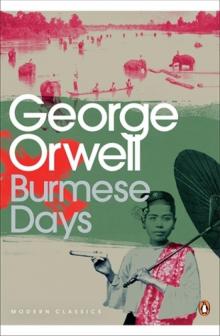 Burmese Days
Burmese Days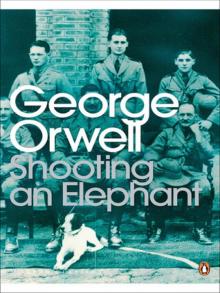 Shooting an Elephant
Shooting an Elephant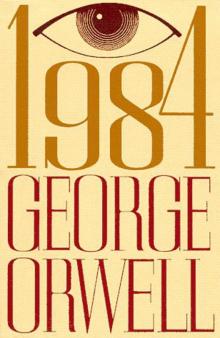 1984 (Penguin)
1984 (Penguin)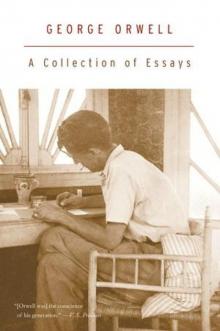 A Collection of Essays
A Collection of Essays 1984
1984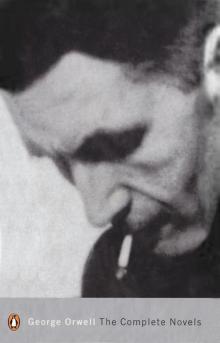 The Complete Novels
The Complete Novels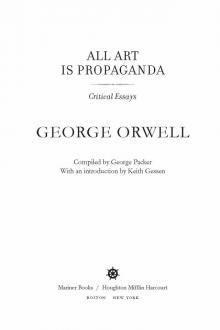 All Art Is Propaganda
All Art Is Propaganda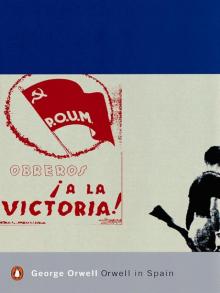 Orwell in Spain
Orwell in Spain Animal Farm: A Fairy Story
Animal Farm: A Fairy Story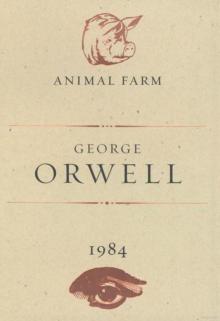 Animal Farm and 1984
Animal Farm and 1984